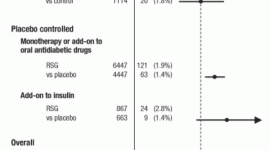Exubera Diabetes Treatment - Exubera Patient Information
Brand Names: Exubera
Generic Name: insulin inhalation
Pronounced: IN soo lin in hel AY shun
Exubera, insulin inhalation, full prescribing information
What is Exubera and what is it used for?
Insulin inhalation (Exubera) was withdrawn from the U.S. market in 2007 due to lack of consumer demand for the product. No drug safety concerns were cited in this withdrawal.
Exubera is a rapid-acting form of human insulin that is inhaled through the mouth. It works by lowering levels of glucose (sugar) in the blood.
Exubera is used to treat type 1 (insulin dependent) or type 2 (non-insulin dependent) diabetes in adults.
Important information about Exubera
Do not use Exubera if you smoke, or if you have recently quit smoking (within the past 6 months). If you start smoking while using Exubera, you will have to stop using this medication and switch to another form of insulin to control your blood sugar.
Before using Exubera, tell your doctor if you have kidney disease, liver disease, or lung disorders such as asthma or COPD (chronic obstructive pulmonary disease).
You should not Exubera if you have a lung disease that is not well controlled with medication or other treatments.
There are many other drugs that can potentially interfere with the glucose-lowering effects of Exubera. It is extremely important that you tell your doctor about all the prescription and over-the-counter medications you use. This includes vitamins, minerals, herbal products, and drugs prescribed by other doctors. Do not start using a new medication without telling your doctor.
If there are any changes in the brand, strength, or type of insulin you use, your dosage needs may change. Always check your medicine when it is refilled to make sure you have received the correct brand and type as prescribed by your doctor. Ask the pharmacist if you have any questions about the medicine given to you at the pharmacy.
If you use Exubera as a meal-time insulin, use it no more than 10 minutes before eating the meal.
Exubera is only part of a complete program of treatment that may also include diet, exercise, weight control, and testing your blood sugar. Follow your diet, medication, and exercise routines very closely. Changing any of these factors can affect your blood sugar levels.
Take care to keep your blood sugar from getting too low, causing hypoglycemia. Know the signs and symptoms of hypoglycemia, which include headache, confusion, drowsiness, weakness, dizziness, fast heartbeat, sweating, tremor, and nausea. Carry a piece of non-dietetic hard candy or glucose tablets with you in case you have low blood sugar.
Before you take Exubera
Before using Exubera, tell your doctor if you have kidney disease, liver disease, or lung disorders such as asthma or COPD (chronic obstructive pulmonary disease).
You should not use Exubera if you have a lung disease that is not well controlled with medication or other treatments.
If you have type 1 diabetes, you should use Exubera in addition to another long-acting type of insulin.
If you have type 2 diabetes, this may be the only medication you use to control your blood sugar, or your doctor may prescribe another long-acting insulin or diabetes medicine you take by mouth.
Exubera is only part of a complete program of treatment that may also include diet, exercise, weight control, and testing your blood sugar. Follow your diet, medication, and exercise routines very closely. Changing any of these factors can affect your blood sugar levels.
If there are any changes in the brand, strength, or type of insulin you use, your dosage needs may change. Always check your medicine when it is refilled to make sure you have received the correct brand and type as prescribed by your doctor. Ask the pharmacist if you have any questions about the medicine given to you at the pharmacy.
FDA pregnancy category C. Exubera may be harmful to an unborn baby. Tell your doctor if you are pregnant or plan to become pregnant during treatment. Exubera can pass into breast milk and may harm a nursing baby. Do not use Exubera without telling your doctor if you are breast-feeding a baby.
How should I take Exubera?
Use Exubera exactly as it was prescribed for you. Do not use it in larger doses or for longer than recommended by your doctor.
Your doctor may occasionally change your dose to make sure you get the best results from Exubera.
If you use Exubera as a meal-time insulin, use it no more than 10 minutes before eating the meal.
To be sure Exubera is not causing certain side effects, your lung function will need to be tested on a regular basis. It is important that you not miss any scheduled visits to your doctor.
Continue using Exubera if you have a cold or flu virus that causes upper respiratory symptoms (cough, sore throat, nasal congestion). Check your blood sugar carefully during a time of stress or illness, since this can also affect your glucose levels.
Exubera is a powder that is supplied in "dose blisters" on cards that are packaged in a clear plastic tray. This tray is sealed inside a foil pouch that also contains a moisture-absorbing preservative packet. The 1-milligram (mg) dose blisters are supplied on a card printed with green ink. The 3-mg dose blisters are supplied on a card printed with blue ink.
Each 1-milligram dose blister of Exubera powder is equal to 3 units of injectable insulin and each 3-milligram dose blister is equal to 8 units of injectable insulin. Using three of the 1-mg dose blisters will not give you the same amount of medicine as one 3-mg dose blister. You may receive too much insulin when using three 1-mg dose blisters together, which could result in hypoglycemia.
If you are combining 1-mg and 3-mg dose blisters to get your correct dose of insulin, always use the least number of blisters possible. For example, if your dose is 4 mg, use a 1-mg blister and a 3-mg blister (a total of two blisters). Do not use four 1-mg blisters or you may receive too much Exubera.
The inhaler unit supplied with Exubera includes a base, a chamber, and a release unit. Each release unit may be used for up to 2 weeks before replacing. You may use the inhaler for up to 1 year before replacing it.
Store the medication at room temperature, away from moisture and heat. Do not refrigerate or freeze. Protect the medicine from moisture and humidity at all times. Do not store the medicine in a bathroom where you shower.
Once you have opened the foil pouch, keep the unused dose blisters in the pouch and use them within 3 months after opening the pouch. Keep the moisture-absorbing preservative packet contained in the foil pouch and do not open the packet or use its contents.
What happens if I miss a dose?
Use the medication as soon as you remember. If it is almost time for the next dose, skip the missed dose and wait until your next regularly scheduled dose. Do not use extra medicine to make up the missed dose.
If you use Exubera as meal-time insulin and you forget to use your dose before a meal, use the insulin when you remember and wait 10 minutes before eating.
What happens if I overdose?
Seek emergency medical attention if you think you have used too much of this medicine.
Symptoms of an Exubera overdose may be the same as signs of low blood sugar: confusion, drowsiness, weakness, fast heartbeat, sweating, tremor, and nausea.
What should I avoid while taking Exubera?
Do not smoke while using Exubera. You should not use this medication if you have smoked within the past 6 months. If you start smoking while using Exubera, you will have to stop using the medication and switch to another form of insulin to control your blood sugar.
Avoid letting your blood sugar get too low, causing hypoglycemia. Know the signs and symptoms of hypoglycemia, which include headache, confusion, drowsiness, weakness, dizziness, fast heartbeat, sweating, tremor, and nausea. Carry a piece of non-dietetic hard candy or glucose tablets with you in case you have low blood sugar.
Exubera side effects
Hypoglycemia (low blood sugar) is the most common side effect of Exubera. Watch for signs of low blood sugar, which include headache, confusion, drowsiness, weakness, dizziness, fast heartbeat, sweating, tremor, and nausea. Carry a piece of non-dietetic hard candy or glucose tablets with you in case you have low blood sugar.
Get emergency medical help if you have any of these signs of an allergic reaction: rash, hives, or itching; wheezing, gasping for breath; fast heartbeat; sweating; feeling light-headed or fainting.
Other less serious side effects are more likely to occur, such as:
- cough, sore throat;
- runny or stuffy nose;
- dry mouth; or
- ear pain.
Side effects other than those listed here may also occur. Talk to your doctor about any side effect that seems unusual or that is especially bothersome.
What other drugs will affect Exubera?
There are many other drugs that can potentially interfere with the glucose-lowering effects of Exubera. It is extremely important that you tell your doctor about all the prescription and over-the-counter medications you use. This includes vitamins, minerals, herbal products, and drugs prescribed by other doctors. Do not start using a new medication without telling your doctor.
If you use other inhaled medications, use them before using Exubera.
Where can I get more information?
- Your pharmacist has more information about Exubera written for health professionals that you may read.
- Remember, keep this and all other medicines out of the reach of children, never share your medicines with others, and use Exubera only for the indication prescribed.
last revision 04/2008
Exubera, insulin inhalation, full prescribing information
Detailed Info on Signs, Symptoms, Causes, Treatments of Diabetes
back to: Browse all Medications for Diabetes
APA Reference
Staff, H.
(2008, April 1). Exubera Diabetes Treatment - Exubera Patient Information, HealthyPlace. Retrieved
on 2026, March 4 from https://www.healthyplace.com/diabetes/medications/exubera-inhaler-diabetes-treatment

